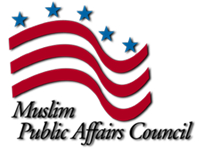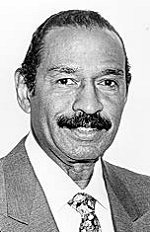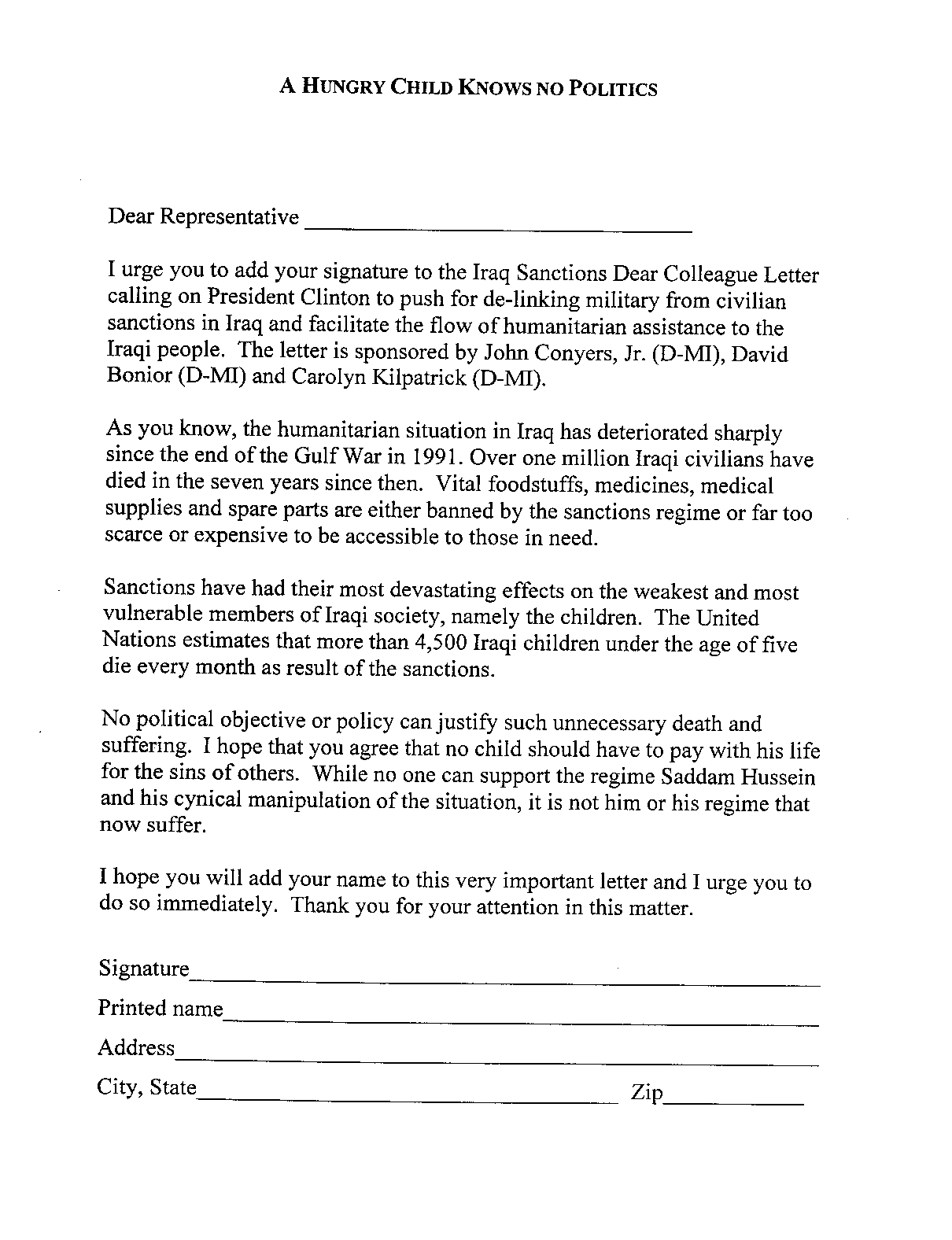
Gulf War I: The Iran-Iraq War
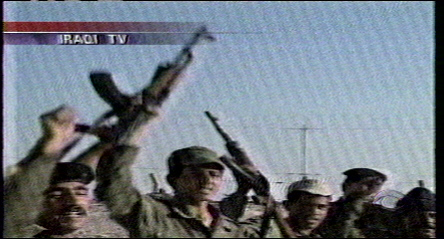 The Shatt al-Arab is a narrow water way which divides
Iran and Iraq. After the fall of the Ottoman empire after WWI the
state of Iraq was carved out of seemingly thin air. It left the new
country of Iraq dividing the area of Kurdistan in the north, Iraqi-Ajam
in the east (leaving a portion of Arabs in Iran), desert in the west and
to the south with a British colony of Kuwait-- which was promised-
under Sykes-Picot to revert to the State of Iraq in due time. However,
there was a glich in the reversion as Oil became an important commodity
in the post WWI economy and with British companies developing the oil fields
in Kuwait and the US developing fields in Saudi Arabia as the corporation,
"Aramco". The waterway of the Shatt al-Arab came to be Iraqs only
way of exporting its oil since the area of Kuwait was being sponsored
by the Britian in the modern state of Kuwait under the royal rule of the
Sabah family. It was over the issue of freedom of navigation and
the perceived threat of closing the Shatt al-Arab that Iran and Iraq went
to war in 1980. During the war the United States and the Arab Gulf
states, Saudi Arabia, Kuwait, UAE, Qatar, Bahrain and Oman supported Iraq
and partially funded its war through loans. After the disastrous
eight year war Iraq was no better off and owed its Arab neighbors money
for its loans. Eventually this situation would become exasperated
by low oil prices in the Gulf. Iraq charged Kuwait with slant oil
drilling, equipment supplied Kuwait by American corporations tied to the
Bush administration, and under such charges Iraq invaded Kuwait in July
of 1990. First, Iraq explained its intentions to the US Ambassador
to Iraq, April Glaspie, of whom they received a tacit approval through
the gesture "America has no opinion in inter-Arab matters". Of course the
inverse of this is that the United States is only interested in Arab/Persian
conflicts, which can be re-read as Secular versus Islamic and US military
support for Iraq during the war with the Islamic Republic of Iran.
The Shatt al-Arab is a narrow water way which divides
Iran and Iraq. After the fall of the Ottoman empire after WWI the
state of Iraq was carved out of seemingly thin air. It left the new
country of Iraq dividing the area of Kurdistan in the north, Iraqi-Ajam
in the east (leaving a portion of Arabs in Iran), desert in the west and
to the south with a British colony of Kuwait-- which was promised-
under Sykes-Picot to revert to the State of Iraq in due time. However,
there was a glich in the reversion as Oil became an important commodity
in the post WWI economy and with British companies developing the oil fields
in Kuwait and the US developing fields in Saudi Arabia as the corporation,
"Aramco". The waterway of the Shatt al-Arab came to be Iraqs only
way of exporting its oil since the area of Kuwait was being sponsored
by the Britian in the modern state of Kuwait under the royal rule of the
Sabah family. It was over the issue of freedom of navigation and
the perceived threat of closing the Shatt al-Arab that Iran and Iraq went
to war in 1980. During the war the United States and the Arab Gulf
states, Saudi Arabia, Kuwait, UAE, Qatar, Bahrain and Oman supported Iraq
and partially funded its war through loans. After the disastrous
eight year war Iraq was no better off and owed its Arab neighbors money
for its loans. Eventually this situation would become exasperated
by low oil prices in the Gulf. Iraq charged Kuwait with slant oil
drilling, equipment supplied Kuwait by American corporations tied to the
Bush administration, and under such charges Iraq invaded Kuwait in July
of 1990. First, Iraq explained its intentions to the US Ambassador
to Iraq, April Glaspie, of whom they received a tacit approval through
the gesture "America has no opinion in inter-Arab matters". Of course the
inverse of this is that the United States is only interested in Arab/Persian
conflicts, which can be re-read as Secular versus Islamic and US military
support for Iraq during the war with the Islamic Republic of Iran.
Gulf War II: The Alliance Against `Iraq

CNN graphics persuad the Clinton Administration
As it has been previously mentioned the Iraqi invasion
of the state of Kuwait was precipitated by the necessity of Iraq to secure
a stable sea port for its oil exports. Having not secured the Shatt
al-Arab in the Iran-Iraq War the Iraqi president, Saddam Hussein cautioned
the US that he must secure a water port for the survival of Iraq.
Iraq commenced the invasion of Kuwait on the eve of failed negotiations
to lessen Kuwaiti over-production of oil and slant oil drilling into Iraqi
reserves. At first the United States paid little attention to the
Iraqi invasion. However, later, seemingly under Saudi insistence, the United
States began a military build up to push the Iraqi army back into the recognized
borders of Iraq. Later we shall see how Saudi insistence has determined
US Gulf Policy to the current crisis in Iraq. After a short
air campaign the United States began a ground war to dislodge Iraqi troops
from Kuwait. However, this short lived campaign was brought to an
close after tbe cease fire agreement between Iraq and the Allies.
The UN Security Council maintained sanctions on Iraq in liu of disarmament
pledges from the state of Iraq. The mechanism established to certify
Iraqi compliance and hence the ending of economic sanctions is the United
Nations Special Commission (UNSCOM) for disarmament in Iraq. UNSCOM
has been the dividing line between Iraq and the UN Security Council, to
a greater extent between Iraq and the Anglo-American Force on the Security
Council.
UNSCOM and Crisis:
In the beginning of the Inspection regime it looked
as though Iraq would be quickly disarmed. Things seemed to proceed smoothly
until it was discovered that Iraq was withholding information in regards
to its nuclear, chemical and biological warfare capabilities. This information
was discovered through a series of defections from Iraq of scientists and
technicians. Instead of a quick end to inspections and an expeditious
certification leading to the removal of sanctions the CBN programs have
been the main area of dispute between Iraq and UNSCOM. It is rational
to place the blame solely on Iraq for hiding key areas of its armaments
programs. However, the hue of the picture changes starting 14 months
ago over the issue of Iraqi palaces.
In brief the bombing of Iraq was brought about by
Richard Butler's report on Iraqi cooperation with weapons inspectors after
they where kicked out of Iraq in August of 1998.
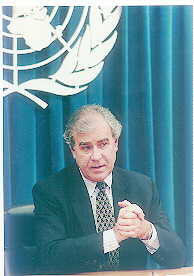
UNSCOM's Richard Butler
Preceding the December Air raids the United States had called off an bombing
raid in Noveber due to an last minute aggreement between Iraq and UNSC.
To test Iraqi compliance, according to former UNSCOM team leader Scott
Ritter the severest inspections where ordered to provoke Iraq into a position
of non-compliance thus letting the US rationalize its bombing campaign
during a time of political scandal in Washington (see http://geocities.datacellar.net/Capitolhill/lobby/3372/media.html,
"Pentagon Officials Dispute Timing".) Thus Richard Butler detailed
five instances of "non-cooperation" [out of 427 inspections] in Nov.-Dec,
98 by Iraq. The Iraqi foriegn minister correctly pointed out that
these incidents of "non-cooperation" where over issues not covered by UNSCOM's
mandate.
-
One, they wanted to inspect a small headquarter of the political
party, the Arabic (ph) Socialist Party. We asked them: What is the relation
between small headquarter of a political party and a disarmament mission?
They didn't answer.
-
The second case, they came to inspect a small building which
previously was the office of the deputy of the director general of the
special security organization. Then later on this post had been canceled.
No more. There is no deputy. So the office had been changed to be a guest
house.
The Iraqi counterpart was explaining to the chief inspector,
which is the Australian, Roger Hill, that this is no longer an office,
this is now a guest house. So while explaining to the chief inspector,
they -- it took it about 20 minutes, about -- around 30 minutes. They put
it in the report this is one of the violations. You have delayed us about
45 minutes. So you deserve to be bombarded, because you have delayed an
inspection team for 45 minutes, only to explain to them that this guest
house, no longer an office. After that they have inspected it. This is
the second one.
The Iraqi counterpart told her that this is incredible.
What's the purpose of interviewing undergraduate? What was the relation
between Iraqi undergraduate students and disarmament? Usually, UNSCOM asks
to interview some of the post graduates for the master degree, for the
doctorate degree.
(Excerpts from the Statement of Mohammed Said Al-Sahaf,
Minister of Foreign Affairs of Iraq, to the Press on Dec. 17, 1998)
- Then there is two cases where they demanded that they want
to inspect establishments on Fridays. We told them that, according to the
agreement with UNSCOM, not all Iraqi establishments function or work on
Friday on the weekend, only small number of them. If that establishment
is working on Friday, you are welcome. If it is not, well, we will go with
you, but there are no people there. This is the agreement. They came on
Friday and they insisted. We told them that we will go along, according
to the agreement.
-
The fourth case which is the fifth case, a chief inspector
which is an American woman, Diana Simon, she went to Baghdad University
and she demanded that she wants to interview the undergraduate students
-- please pay attention to this -- she wants to interview all undergraduate
students in the science college in Baghdad University.
Dr. Phyllis Bennis, Disarmament specialist, wrties regarding the UNSCOM
report by Richard Butler which precipitated the bombing:
-
"Butler's December 1998 report is fundamentally ambiguous.
He describes several specific instances of Iraqi non-compliance with UNSCOM.
And, since his February 1998 agreement with Kofi Annan promised "unconditional
and unrestricted" access, those instances do represent a violation of the
agreement. However, Butler's own language indicates that the discrete instances
of defiance took place in a broader context of overall cooperation. This
distinguished these specific November/December violations, for example,
from the broad non-compliance of the period following Iraq's August 5,
1998 announcement that it was halting all cooperation with UNSCOM. The
violations described by Butler represent an incremental, not qualitative,
problem: the inspectors were carrying out "the majority," or "some" of
their inspections, though not getting access to everything they requested.
Butler's language is "In statistical terms, the majority of the inspections
of facilities and sites under the ongoing monitoring system were carried
out with Iraq's cooperation." He then describes problems within that context
of "Iraq's cooperation." In other sections of the report, he details examples
of partial compliance and partial violation. The accompanying IAEA
report is far less equivocal. It identifies specific surveys and inspections
carried out, and states that Iraq "has provided the necessary level of
cooperation to enable the above-enumerated activities to be completed efficiently
and effectively." The political problems with Butler's report is
that the conclusions he reaches, and especially the absolutist, one-sided
and unequivocal tone, do not match the facts even as he states them. His
conclusion states that "the Commission is not able to conduct the substantive
disarmament work mandated to it by the Security Council and, thus, to give
the Council the assurances it requires with respect to Iraq's prohibited
weapons programmes." There is no mention of the fact that his report admits
UNSCOM has been able to conduct SOME of the substantive disarmament work,
or MOST of the disarmament work; the report does not state what percentage
remains incomplete. (This assessment doesn't even take into account
the actual substance of the reported violations. One highlighted incident
of Iraqi non-compliance involved UNSCOM's demand for unfettered access
to the Ba'ath Party headquarters. While arguably allowed under Iraq's promise
of "unrestricted" access, that was hardly a politically reasonable request
-- if the goal was real disarmament rather than political provocation.)
The level of partial non-compliance Butler reported should have been met
with a Security Council meeting (perhaps involving as well the Disarmament
(First) Committee of the General Assembly to broaden the approach and bring
new thinking to the debate) to discuss options. Certainly diplomatic approaches
should have been the starting point."
-
(see http://www.leb.net/iac,
"What Non-Compliance?" 12/27/98)
Wooing the Opposition for Political Expediency:
An interesting change in US policy
toward Iraq is the overt support for the Opposition in Iraq. Recently
the US Congress passed the "Iraq Liberation Act" which allows for the disbursement
of $100 Million in aid to Opposition groups outside of Iraq to overthrow
the government. However, this stands in stark contrast to Oppositon statements
such as the Leader of the Supreme Council for the Islamic Revolution in
Iraq, an Shi'a muslim resistance force, which calls for the elimination
of foriegn (US/UK) interference in Iraqs domestic affairs. Additionally,
the chief request from Oppositon groups is to indict Saddam Hussein as
a war criminal and to end the economic sanctions against the people of
Iraq, not for military bombardment of Iraqis. Some analysts see this as
an attempt to woo the oppositin into a policy of support for continuing
sanctions and containment which both have genocidal effects. (See http://welcome.to/IraqCampaign)
Containing Iran by Sanctioning `Iraq:

Iranian President Khatami
Suspicions have been aroused in the Shi'a world regarding the US support
for the Opposition. One must ask why would the US support the Shi'a in
Iraq while basing its navy in Bahrain a Shi'a majority state where Shi'a
have no political rights-- Apartheid. Additionally, in Saudi Arabia
the Shi'a are discriminated against and in Lebanon the Shi'a live under
threat of Israeli aggression according to International Law and the US
pays $1 Billion in aid to the aggressors, Israel.
This situation is not abated by the US bombardment
of Republican Guards considering the units attacked where not engaged in
offensives in the South. And Basra was heavily damaged by the bombardment
adding to the misery of the Shi'a population there.
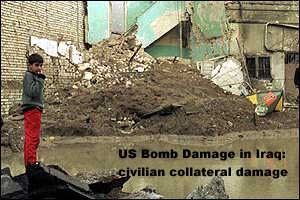
The only remaining pocket of armed resistance is in Nasiriyih, yet
the US did not come to their assistance a reminder of the refusal to help
the Shi'a during the Intifada (uprising) during 1991. Allegedly a policy
brought on by Saudi insistence of inaction according to Martin Indyck of
the State Department.
This brings us to the reality of the sanctions policy
which is not unrelated to earlier support for Iraq during Gulf War I. The
result of sanctions has been to contain and isolate "revolutionary Shi'ism"
by debilitating the Shi'a Iraqis and containing the Iranians through political
manipulation in the East through Afghanistan's Taliban and in the West
through sanctioning a trading partner, a large segment of Shi'a and empowering
Suadi Arabia with Iraqs oil revenues. This is the result of the refusal
to support the Opposition during the Intifada of '91.
The Offensive's Toll on Iraq:
Over
400 missiles where fired on Iraq hitting over 100 targets with an damage
ratio of 85%. According to reports on Kurdish radio over 1200 Iraqis
where killed:
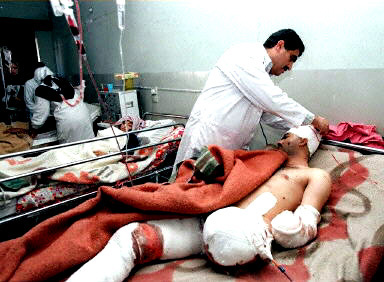
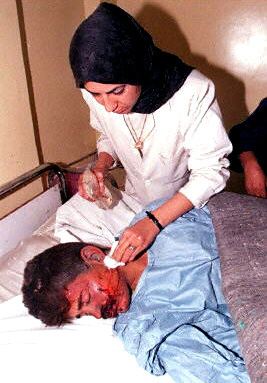 
Iraqi Casualties: Bombs do not discriminate
With such a human toll there has been no tactical advantage gained by the
United States. In fact the opposite has occured accoring to the Military
analysts. The de facto end of weapons inspections and UNSCOM has
hastened the end of a failed policy.
Sanctions: Pleading for their Lives.
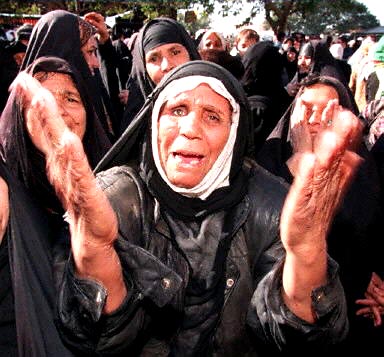
An Iraqi Women at a Funeral for a slain Iraqi.
Despite all this this is not the worst for Iraq. Far more tragic
are the sanctions on Iraq's people. Over 1.5 million persons, mostly
children and the elderly have died according to UNICEF from the UNSC sanctions
imposed on Iraq. Some basic information of the damage is:
-
"Approximately 250 people die every day in Iraq due
to the effect of the sanctions. - UNICEF, April 1998."
-
"The International Federation of Red Cross and Red
Crescent Societies acknowledges that sanctions -- which are an instrument
within the UN Charter -- are used by governments to political ends, a form
of unarmed warfare which, as the former US President Woodrow Wilson put
it: 'Provide a peaceful, silent and deadly remedy.' Let us be clear: sanctions
can kill." - The President of the International Federation of Red Cross
and Red Crescent Societies, May 1998
-
"The Cuban and Iraqi instances make it abundantly clear
that economic sanctions are, at their core, a war against public health.
Our professional ethic demands the defense of public health. Thus, as physicians,
we have a moral imperative to call for the end of sanctions. Having found
the cause, we must act to remove it. Continuing to allow our reason to
sleep will produce more monsters." - New England Journal of Medicine (Editorial),
24 April 1997 (see http://www.leb.net/iac)
 For 7 years, an average 150 Iraq children a day under 5 years
old, or total 350,000, have died because of no food for growth and disease
immunity, or medicines for infected or sick people. The number has now
increased to 160 children per day. Total deaths for all ages is 400 per
day, or 920,000.
For 7 years, an average 150 Iraq children a day under 5 years
old, or total 350,000, have died because of no food for growth and disease
immunity, or medicines for infected or sick people. The number has now
increased to 160 children per day. Total deaths for all ages is 400 per
day, or 920,000.

One in 3 children under 5 year old are so malnourished they
have 'stunted' growth only previously seen in pre-famine conditions in
Africa that have occurred for less than one year duration, whereas the
Iraq 7 year embargo is the longest total trade blockade in world history.

Due to decreased mother's food intake, 1 in 4 babies at birth
are under 2.5 kilograms (5.5 pounds), up from 1 in 20 in 1990, and will
continue to have very low weight through childhood. This has previously
only occurred in famine conditions.

Diseases like typhoid, hepatitis, and tuberculosis are at
epidemic levels from lack of food nutrients that produce low disease immunity.
This child died from liver failure and Jaundice, after receiving no medicine
for Hepatitis.

Dysentery and Cholera affect ? million people from
polluted drinking water, as water purifying plants bombed in '91 have not
been rebuilt because of no spare parts.
(photos and comments by J. Ball, http://www.air-photo.com/iraq/)
Resistance Grows, the People Fight Back:
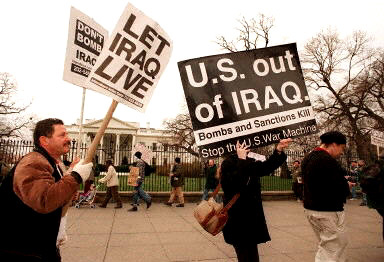
Washington, DC
Within minutes of the first bombs dropping on Iraq protests
began in the United States, the Middle East and other nations.
Eight people where arrested in Washington, DC in front of the White House
(see http://prop1.org). Russia recalled
its Ambassador and the Middle East Peace Process was pulled to a standstill.
In Arab countries the parliamentarians, opposition groups and students
staged massive street demonstrations.
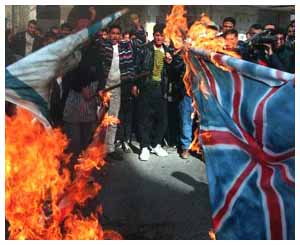
Palestinians Protest
All testament to the growing criticism of US policy
(see http://www.nonviolence.org/Vitw & Salam Review) in
the region and the reassertion of a world which is not governed by a "New
World Order" but by the will of the people. (see http://www.iacenter.org) |
|
|





